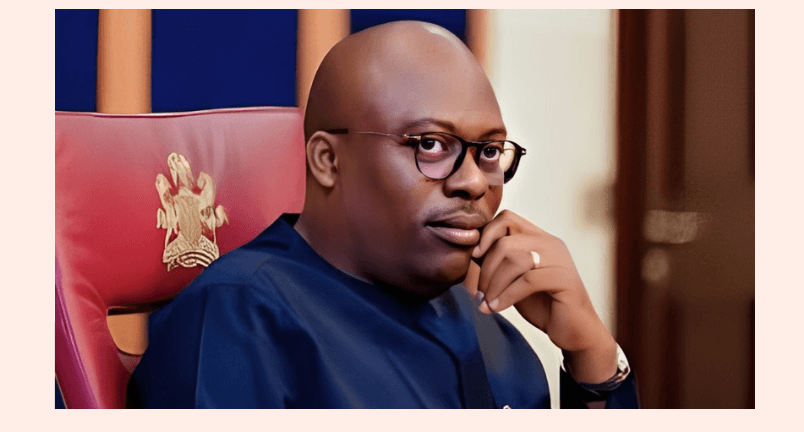Rivers State Governor, Siminalyi Fubara, has expressed regret that his party, the People’s Democratic Party (PDP), won’t participate in the October 5 Local Government Election.
Fubara made this known on Thursday during a meeting with party stakeholders at the Rivers State Government House in Port Harcourt, citing compliance with the Supreme Court judgment on local government autonomy as the reason for the election.
“The election must hold on Saturday,” Fubara emphasized. “As governor, I have to obey the Supreme Court ruling that local governments must have elected officials.” He acknowledged being the “greatest loser” due to his party’s non-participation but praised party faithful for supporting democracy and the rule of law.
“Go, do what the law says you should do, as demanded by the RSIEC Law, and leave the rest. RSIEC will take it from there, and when RSIEC finishes its part, the State Government will also take it from that point and finish its part, and the process will all be consummated by the special grace of God in a few days.
“But because of the Supreme Court ruling that there must be elected officials to manage the affairs of local governments, as a governor, I have to obey that.
“And a good number of you here are my party faithful and you are not even benefiting from it, and you are here supporting us. So, what is the problem?
“So, I want to thank you for supporting democracy. I want to thank you for ensuring that there is a rule of law. I want to thank you for sticking your neck out to make sure that Rivers State still stands among the comity of states.”
Fubara stressed that only registered voters in the state would participate in the election, urging residents to return to their local government areas, follow the process, and shun violence. He also referenced the Federal Government’s three-month extension for implementing the Supreme Court judgment.
The governor’s announcement comes amid controversy surrounding the election. The camp of FCT Minister, Nyesom Wike, claims a federal high court ruling prohibits the election, while Fubara argues the Supreme Court’s judgment mandates elected local government councils.
The Rivers State Independent Electoral Commission (RSIEC) has reaffirmed its commitment to conducting the election, stating it has the necessary voters’ register and video evidence.
The governor’s statement suggests that the PDP’s non-participation is a strategic move, rather than a boycott. Fubara emphasized his commitment to supporting the democratic process, ensuring that the elections will be conducted and concluded smoothly. He urged registered voters and political leaders to participate in the process, which will usher in new leadership for the 23 Local Government Councils.
Reasons Behind PDP’s Non-Participation
While Fubara didn’t explicitly state the reasons behind PDP’s decision, analysts suggest that internal party conflicts and power struggles might be contributing factors. Some observers point to the influence of former Governor Nyesom Wike, who’s rumored to be exerting control over the party.
However, the PDP faction loyal to Wike, alongside the Tony Okocha-led All Progressives Congress, had withdrawn from the October 5 poll, citing irregularities and lack of due process on the part of RSIEC.
On September 24, caretaker committee chairmen loyal to Fubara reportedly defected to the Action Peoples Party (APP) ahead of the October 5 LGA polls.
Earlier today, a crowd besieged the PDP secretariat in Port Harcourt, the state capital, to protest against the conduct of the polls.
The protest was reportedly organised by loyalists of Nyesom Wike, minister of the federal capital territory (FCT).
Implications of PDP’s Absence
The PDP’s non-participation could have significant implications for the party’s future in Rivers State. With the party not contesting the local government elections, Fubara’s administration may need to spend more resources to maintain control, potentially bribing winners to cross over to the PDP. This could weaken the party’s grassroots structure and create opportunities for opposition parties to gain traction.
The announcement has sparked heated debates, with some critics accusing Fubara of succumbing to pressure from Wike’s faction. Others see this as a strategic move to consolidate power and resources. The development has also raised concerns about the potential for electoral manipulation and the undermining of democratic institutions.




